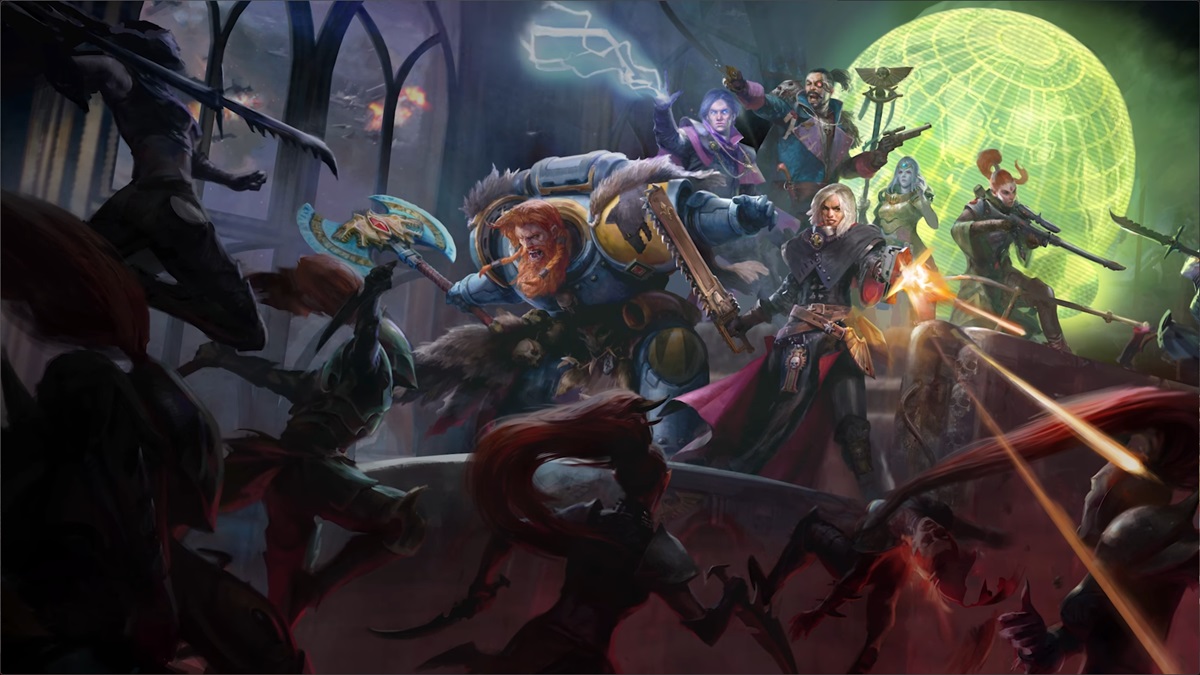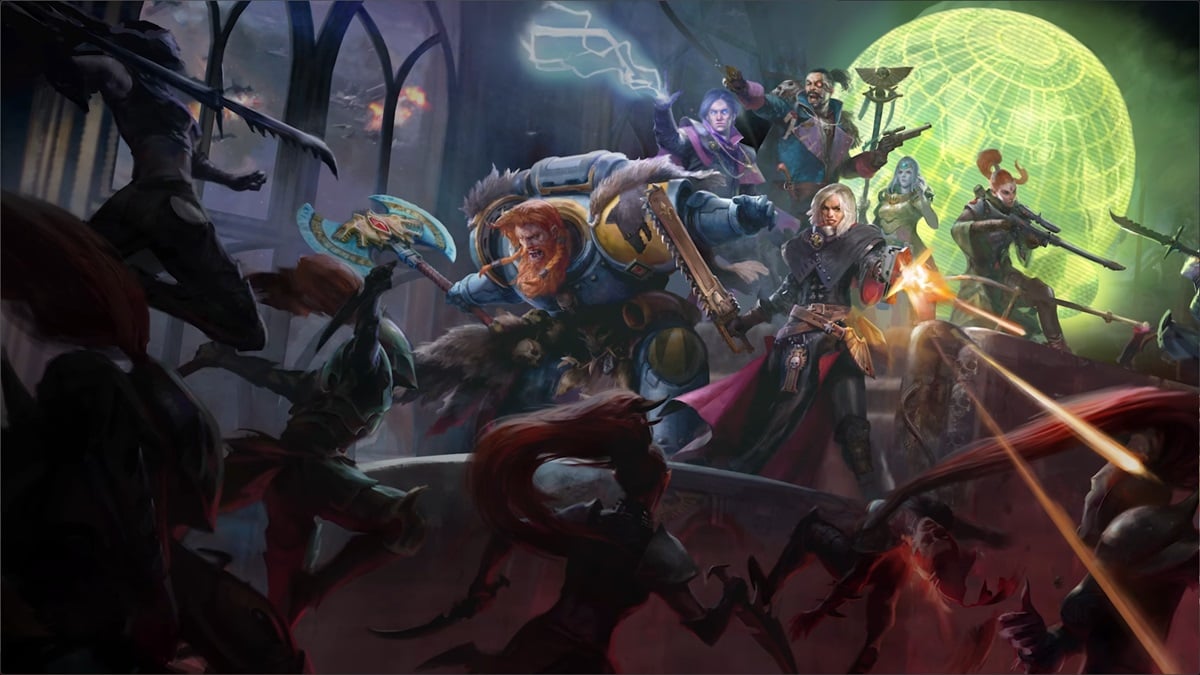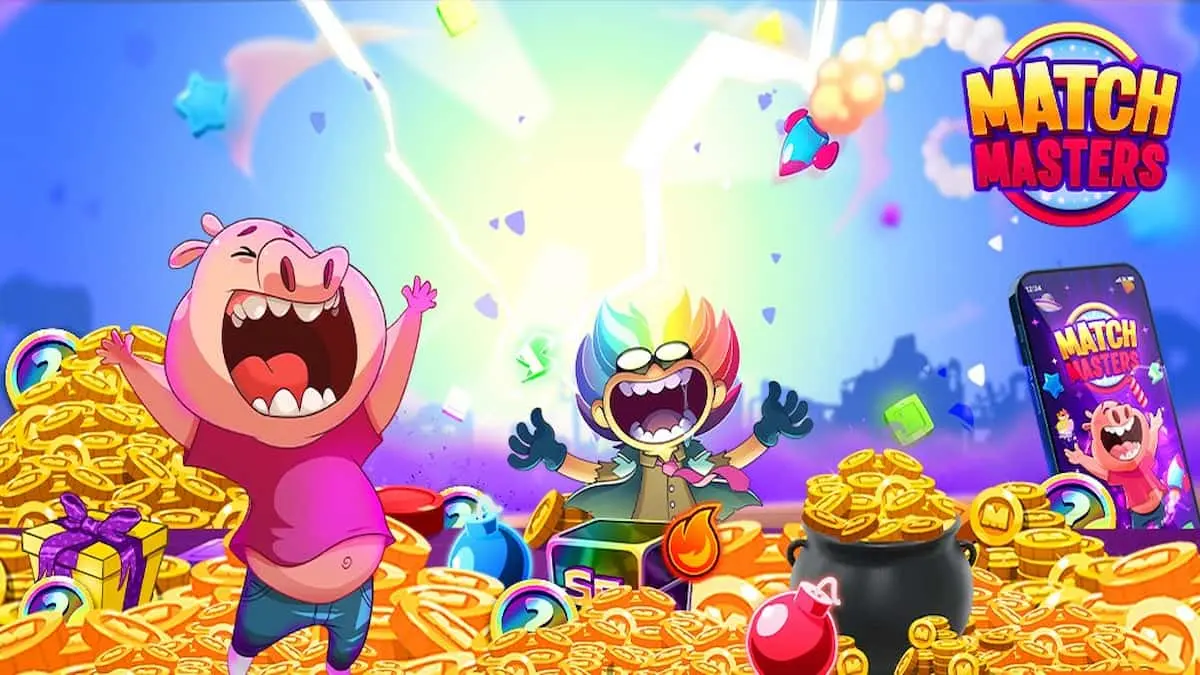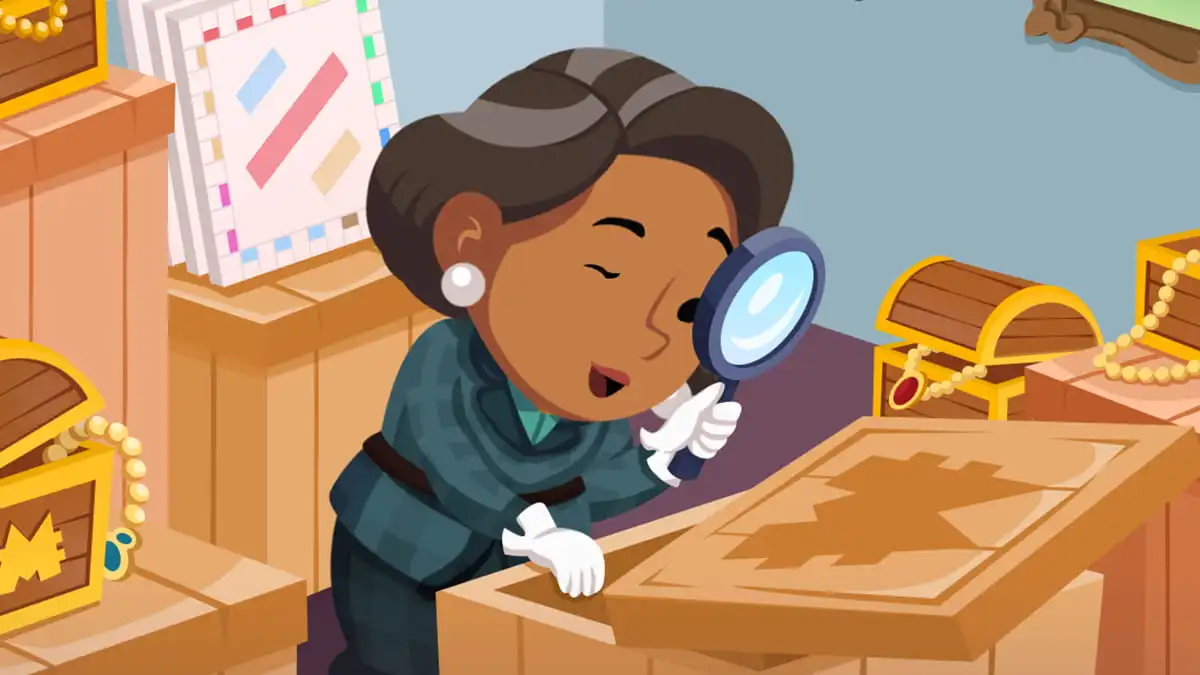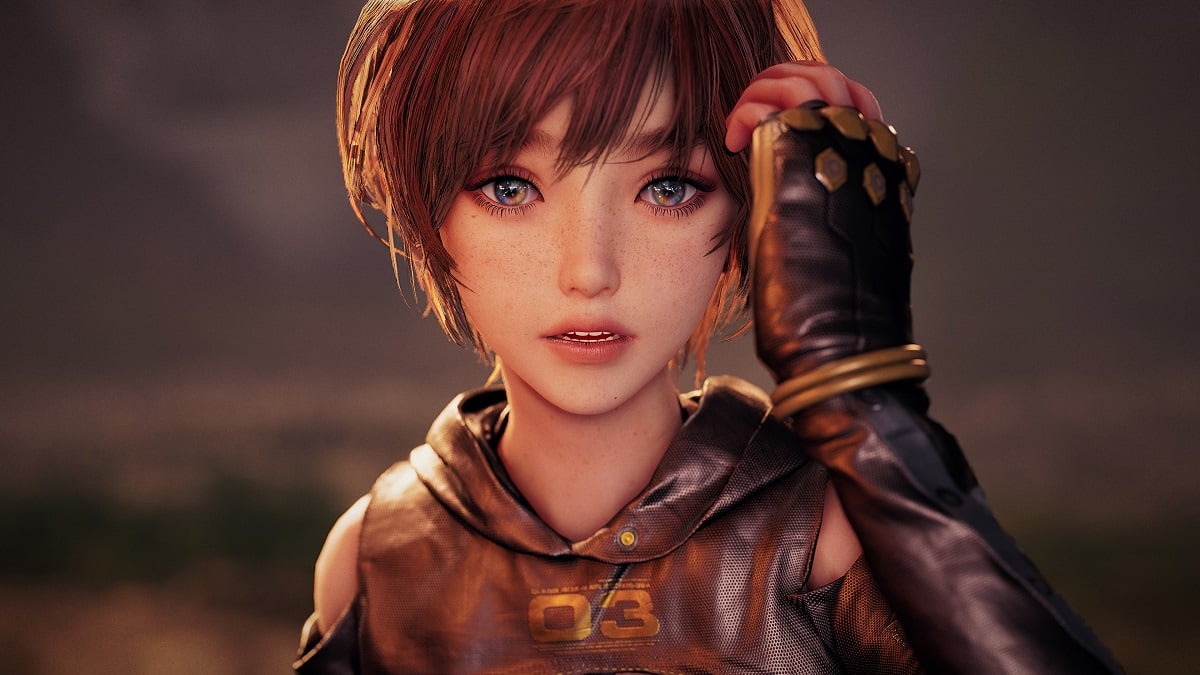It’s been a while since I’ve felt as genuinely mixed over a game as I have for Warhammer 40,000: Rogue Trader. Coincidentally, the last game I felt this conflicted over was Warhammer 40,000: Darktide, but for dramatically different reasons, as the only things they have in common are the IP and unstable performance.
While the 2022 title was a horde shooter, Owlcat’s take on the 40,000 universe is the first CRPG entry. It shares a lot in common with the developer’s previous Pathfinder games but stands out in the library. Again, that’s in positive and negative ways.
Rogue Trader is a brilliant game, but it could’ve been fantastic, and that’s what’s frustrating about it. For every shining quality, there’s usually something tacked on detrimental to the overall experience. It’s a grim, haunting journey for all of the right reasons given the universe, but a few tedious encounters and bugs made for some extraneous misery along the way.
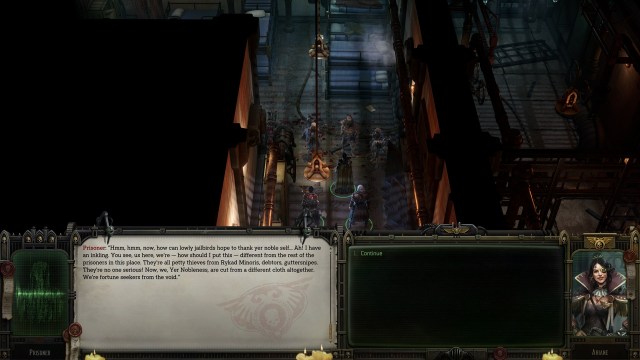
Warhammer 40,000: Rogue Trader (PC [reviewed], PlayStation 5, Xbox Series X/S)
Developer: Owlcat Games
Publisher: Owlcat Games
Released: December 7, 2023
MSRP: $49.99
A gothic interstellar adventure
Rogue Trader‘s premise sees players take on the titular title after inheriting it from a distant relative, Theodora. While the story initially has you tracking down Theodora’s supposed killer, this deviates into a tale of life as a Rogue Trader.
Much of the plot after the first chapter revolves around humanity’s conflicts with various Xenos species and the protagonist protecting their colonies. Rogue Trader‘s writing is by far its strongest trait, but it feels oddly paced as the story shifts from its initial premise for dozens of hours.
And while some of that drags, Rogue Trader does excel in its moment-to-moment writing, like in your interactions with Kronos Exapanse’s inhabitants and other characters. Humans, like Argenta and Hendrix, who zealously serve the Imperium, do so with different approaches. While the former is gleefully devout, the other is coldly brutal, but what’s clear is their dedication.
Even Xenos companions like Yrilet do a wonderful job coming off as truly alien beings despite being humanoid. As my primary romance, Yrilet led me down a surprisingly emotionally charged arc about breaking down cultural barriers and living with the grief of a life you can never return to. It’s her little touches, along with phenomenal and distinct voicework from the cast, that really make Rogue Trader sing.
Supplemental details filling in what players can’t or won’t witness are woefully enchanting. When I’m not shown something happening, text descriptions weave their own flavorful tales that do the job just fine. Rogue Trader‘s most brutal scenes are often conveyed through text, and it serves its cruelty far better than any images of gore and violence would.
The mini-text adventures play with writing styles, framing my character’s deeds and personality from several angles. For instance, one casts me as a powerful figure incapable of wrongdoing, while another voice seeks to turn me into prey. Seeing a massive passage ahead is always a treat, even if I do long for more voiced dialogue.
With the flexibility the Rogue Traders themselves have, some still feel railroaded down particular paths and assigned boxes — that’s thanks to labeling certain choices Dogmatic, Iconoclast, and Heretical. Picking these options enforces the protagonist’s worldview, with certain dialogue options opening up once far along these paths.
Those paths boil down to exactly what their names infer, too. Dogmatic choices reflect zealotry, while Heretical ones dictate clear rebellion. Iconoclast decisions reflect Heretical ones in that they deviate from norms, but typically for more selfless reasons. It’s the path I went for since I tried to play as an outlaw who broke conventions for altruistic reasons.
It’s akin to Mass Effect’s Paragon and Renegade system, sharing its same ups and downs. After exploring all my options, there isn’t much of a reason to deviate from the one ideology. If I stray too far, I risk endgame choices for little benefit. Conceptually, it’s neat to tie that morality to gameplay, but yet again, it’s limiting and robotic in practice.
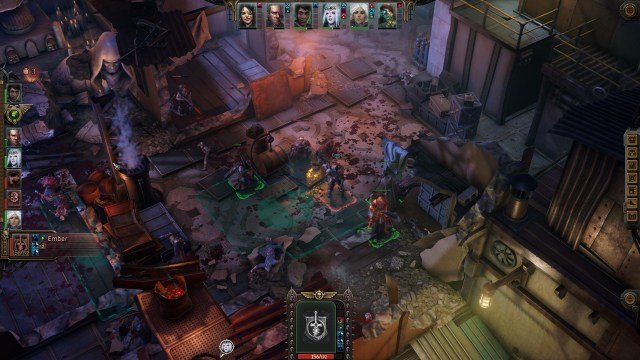
Fighting in the Imperium’s name!
As with Owlcat’s previous games, Warhammer 40,000: Rogue Trader uses turn-based combat, with all combatants using movement and action points. Managing your resource pool between choices to move around and attack grows more complex over time, as you’re only allowed a single attack until later levels permit more.
The number of attacks also varies depending on a character’s Archetype, Rogue Trader’s class equivalents. While there are only a few, character backgrounds and skill variations within an Archetype offer significant flexibility. Those evolutions make characters shine, even if sharing some choices. The scoundrel Jae and voidship navigator Cassia might start as Officers ordering others around, but one can evolve into a frontline commander, while the other remains in the back focusing on buffs.
While that draws some parallels to Owlcat’s Pathfinder games, Rogue Trader meaningfully expands on those efforts, particularly when it comes to positioning. You’ll need to note strategic spots for cover and weapons with picky ranges. I’ve learned that the hard way with my powerful Operator sniper, who grows more useless the closer enemies get.
The only real drag when it comes to battles were space combat sessions, as the player’s voidship is pretty weak starting out. As the game progresses, however, the inverse slowly happens. Some on-foot battles remain fun and fast, but boss encounters became increasingly frustrating. Although I rarely died more than once in a fight, several bosses were miserable.
One particularly egregious fight sent me against someone taking extra turns when his minions were attacked. I managed to beat him on the second try, but it was irritating to the point the strategic intrigue no longer mattered — I just wanted to speed through for the story. It was an optional fight, sure, but I had to do it for the Psyker Idra’s companion quest.
Meanwhile, ship battles improve as you gain new allies and gear, but the challenge heavily pivots into non-existent. It’s not bad, but Rogue Trader struggled to find its sweet spot, a balance somewhere to feel like I’m improving and rising to the occasion. It’s all good stuff, but there are little layers of irritation. I ultimately enjoyed these encounters, but when it drags, it really suffers.
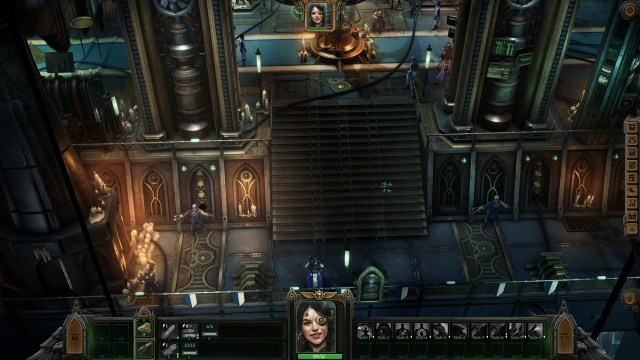
Is the Warp distorting reality, or is that a bug?
Despite some encounter ups and downs, Rogue Trader never failed its settings. Most of the game finds players in human worlds, where you can smell the dirt and grime of places like Footfall. Contrast this with the player’s voidship, whose gothic and industrial aesthetics make it oppressively regal, and you’ve got something truly impressive in its scope and contrast between locations.
Part of that setting owes its stellar ambiance to its music and general sound design, too. The voidship theme shines as particularly haunting with its low choir, and serves as something appropriately unwelcoming to the hub. Other tracks gently fade into the background, or rely heavily on ambient sounds, but they all read as thoughtfully crafted for each scene.
And while art style really drives Rogue Trader’s moody setting, texture quality is truly lacking, especially frustrating with how it runs. Performance is surprisingly unstable on a decent gaming PC, with the framerate often dipping below 60fps with DLSS enabled. It’s not a big deal with a game like this, but it’s never fun seeing performance abruptly tank in basic areas like the voidship. Pathfinder: Wrath of the Righteous had similar performance issues for me, and it’s a shame to see them carry over.
Even more bizarre are the bugs present and how they worsened the longer I played. While the performance hiccups prevailed throughout my playthrough, by hour 45 it wasn’t uncommon to see NPCs t-posing, and on one nasty occasion, everyone just stopped moving and forced me to restart. Owlcat is patching Rogue Trader, but I can’t help but feel like I’m witnessing its reality collapse in on itself.
Despite the deep issues I have with Rogue Trader, I can’t help but love it for what it is. The servitors in my voidship might be perpetually t-posing, but the gothic spaceship remains an amazing hub. Late-game fights can become a slog, but the synergy amidst my party delivers endless satisfaction when builds come together.
Rogue Trader is gargantuan and annoying on occasion, but haunting and wonderful through and through. It captures what makes Warhammer 40,000 so captivating and horrifying through its presentation, setting the mood in a way that keeps me enthralled through the worst of it. If Owlcat is anything, it’s a studio that creates RPG diamonds. It hasn’t made one without rough edges just yet, though I hope it eventually perfects its craft.
[This review is based on a retail build of the game provided by the publisher.]
